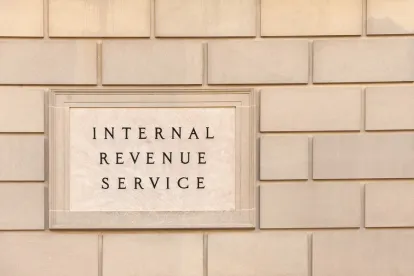Most employers are expected to pass on the IRS’ offer to temporarily delay collecting Social Security taxes. For background, both employers and employees are generally required to pay a Social Security tax at a flat rate of 6.2% (for a total of 12.4%) on all wages. In a separate article from our Corporate and Securities Blog, we discussed how the CARES Act allows employers to delay paying the employer’s portion of Social Security taxes.
The Presidential Memorandum dated August 8, 2020 (the “Memorandum”) and IRS Notice 2020-65 (the “Notice”) now allows employers to delay collecting the employee’s portion of Social Security taxes through the end of the 2020 calendar year. The intent behind the Memorandum and the Notice is to put money back into the pockets of employees during difficult times. The pragmatic effect, however, is that employees are offered an interest-free loan, with employers on the hook in the event of a default.
To be clear, the Social Security tax deferral program (the “Program”) does not waive or forgive any taxes. While the President has campaigned to forgive any deferrals, forgiveness would require additional Congressional action. If an employer participates in the Program, employees will be required to repay any deferred taxes from January 1, 2021 through April 30, 2021. Any amounts not repaid by April 30, 2021, are subject to penalties and interest. The beginning of a new calendar year can be a challenging time as many people are still paying-off bills from the holiday season and healthcare insurance deductibles reset. Paying roughly twice as much in Social Security taxes would be an additional expense at a time when employees can least afford it. Therefore, employee communication for participating employers will be key to ensure employees understand that they are only kicking the can down the road.
The Program is voluntary. Unsurprisingly, only the Federal government has publicly announced that it will participate in the Program thus far. There does not appear to be a penalty for employers who elect not to participate in the Program and continue withholding Social Security taxes for the remainder of the 2020 calendar year.
To add to the administrative hassle, only employees with wages of less than $2,000 per week, or the equivalent amount for other pay periods, are eligible to participate in the Program. This determination is made on a pay period by pay period basis, so employees with fluctuating wages (for example, due to overtime or bonuses) may be eligible for some payroll periods, but not others.
If an employee leaves before repaying the deferred taxes in full, the employer is ultimately responsible for any deficiency. The employer can “make arrangements to otherwise collect” the deferred taxes from the former employee. Current guidance is silent, however, on how an employer could actually go about collecting these amounts.
The odds of many employers participating in the Program are low given that employers are ultimately left holding the bag for any deferred taxes that are not repaid by April 30, 2021. Employers should consult with legal counsel while deciding whether to participate in the Program.



 />i
/>i